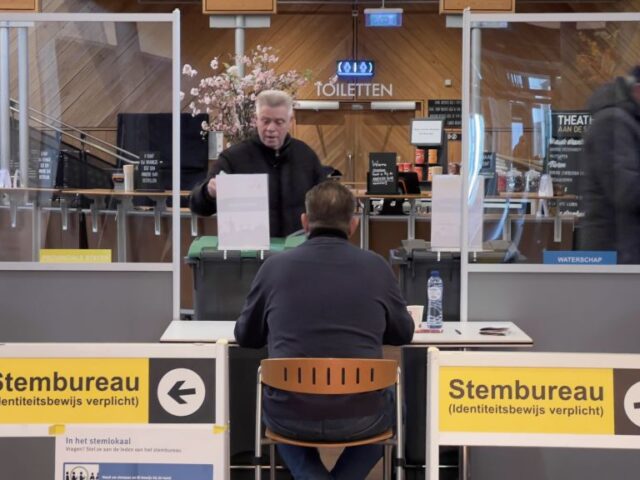New polling puts a left-wing alliance in first place in the upcoming Dutch elections, opening the door to a potential leftist coalition government.
A migration scandal brought down the Dutch government and a party of pro-farmer protest populists on the ascent are aiming to pull the next administration away from the globalist centre. Yet a new alliance of the Labour Party with the Greens falling in behind the leadership of veteran Eurocrat Frans Timmermans are enjoying strong polling, notes Euractiv, with their polling average tracker putting that left-alliance at 18.5 per cent, three points clear of the next-nearest challengers.
Dutch Labour was once a major governing force in the country, having had several Prime Ministers and was in government as a junior coalition partner as recently as 2017. They saw their worst election results ever as Europe looked right and their votes were taken by new, more niche left-wing parties in the country. Before the merger, Labour was polling as low as five per cent.
Globalist Dutch Government Collapses, PM Mark Rutte Resigns, as Pro-Farmer Populists Threaten to Upend Establishment in Upcoming Electionshttps://t.co/6W0ixlj4Zy
— Breitbart London (@BreitbartLondon) July 8, 2023
The GreenLeft party, their new partner, has roots in the old Dutch Communist Party and has had some success this century, coming close to entering government in 2017 but stumbled at the 2021 election, losing half its seats. Yet its radical-left platform appears to be picking up more interest, and working together the two parties may pose a threat to the much-discussed anticipated rightward swing.
Despite Euractiv’s poll tracker, it remains clear there is everything to play for in the months approaching the November 2023 election, with the top three parties jostling for the top spot. The real insurgents in the vote, the anti-Green, pro-farming BBB (Farmer–Citizen Movement) have come first in half a dozen recent polls, and are within points of the lead. It is a remarkable ascent for a party that polled just one per cent in the last election but has capitalised on outrage over Rutte’s hardline globalist-green attacks on agriculture.
While results have since settled, BBB enjoyed a brief commanding lead over all other parties earlier this year as the farmer protests against the government went on. They will wish to capitalise on their recent success in local elections, where they became the single largest party nationwide despite having been outspent on media advertising by ten other parties, underlining the grassroots nature of the group.
Populism Rising: Dutch Pro-Farmer Party Won Big Despite Being Outspent by Ten Other Parties https://t.co/OTfxUvWNn5
— Breitbart London (@BreitbartLondon) March 25, 2023
Nevertheless, Euratctiv appears to buttress earlier reports which suggested, before the merger went ahead, that if the greens and the left merged they would become the largest party. None of this is enough to win an election outright, though. Like many European countries, the Dutch electoral system and culture permit a proliferation of small parties which means coalition governments between two or more parties are the norm.
While this system ensures a much wider range of opinion and thought is represented in Parliament compared to two-party systems, it also makes governments less stable, as disagreements over how to proceed on policy areas can bring them crashing down. This was the case with the outgoing government of Mark Rutte, a four-way coalition including his globalist centre-right People’s Party for Freedom and Democracy.

COMMENTS
Please let us know if you're having issues with commenting.